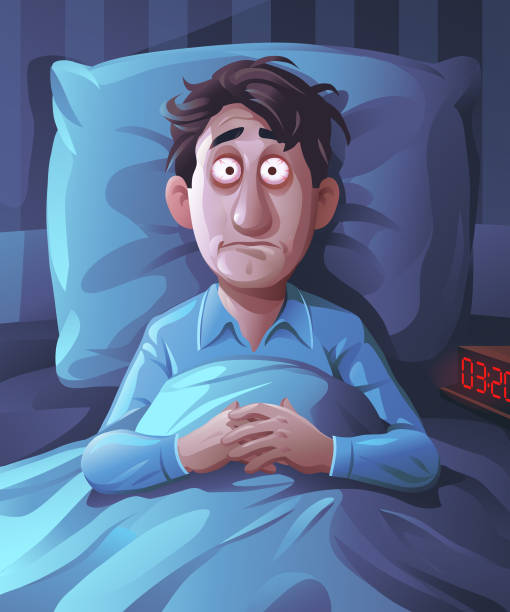In the competitive landscape of modern education, academic pressure has become a significant stressor for students worldwide. Coupled with the demands of achieving academic success, many students face another formidable challenge: insomnia. Insomnia, characterized by difficulty falling asleep, staying asleep, or waking up too early and not being able to return to sleep, can severely impact a student’s ability to perform well academically and maintain overall well-being.
Understanding Insomnia in Students
Insomnia among students is often multifaceted, influenced by a variety of factors ranging from psychological to environmental. Academic pressure exacerbates stress levels, leading to heightened anxiety and sleep disturbances. The pressure to excel in exams, meet deadlines, and manage academic workload can create a cycle of sleep deprivation and compromised mental health.
Psychological Factors
- Stress and Anxiety: Academic expectations contribute significantly to stress and anxiety levels in students. The fear of failure, performance anxiety, and the pressure to meet high standards can keep students awake at night, ruminating over academic concerns.
- Perfectionism: Many students strive for perfection in their academic endeavors, which can lead to self-imposed pressure and sleep disturbances. The relentless pursuit of flawless academic performance can disrupt sleep patterns and contribute to insomnia.
- Mental Health Issues: Students experiencing depression, anxiety disorders, or other mental health conditions are particularly vulnerable to insomnia. These conditions often coexist with academic pressure, further complicating sleep patterns and overall well-being.
Environmental and Lifestyle Factors
- Irregular Sleep Schedule: Erratic sleep schedules, such as pulling all-nighters to study or irregular bedtime routines due to varying class schedules, disrupt the body’s natural sleep-wake cycle (circadian rhythm), making it difficult to fall asleep at night.
- Technology Use: Excessive use of electronic devices, especially before bedtime, can interfere with sleep onset. The blue light emitted by screens suppresses melatonin production, delaying sleep initiation and reducing sleep quality.
- Living Conditions: Noise, uncomfortable sleeping environments, and dormitory life can also contribute to poor sleep hygiene among students. Lack of privacy, roommates’ schedules, and inadequate sleep surfaces can all impact sleep quality.
The Impact of Insomnia on Academic Performance
The consequences of insomnia extend beyond nighttime restlessness, affecting students’ cognitive function, academic performance, and overall health:
- Cognitive Impairment: Sleep deprivation impairs concentration, memory, and cognitive abilities essential for learning and academic success. Students may struggle to focus during lectures, retain information, and perform well on exams.
- Emotional Instability: Chronic sleep deprivation exacerbates mood swings, irritability, and emotional instability. Students may experience heightened stress levels, leading to burnout and decreased motivation to engage in academic activities.
- Physical Health Complications: Insufficient sleep compromises immune function, increases susceptibility to illnesses, and exacerbates existing health conditions. Chronic insomnia is associated with cardiovascular problems, metabolic disorders, and compromised mental health.
Strategies to Help Students Cope with Academic Pressure and Insomnia
Addressing insomnia among students requires a multifaceted approach that combines educational, behavioral, and environmental interventions:
Educational Interventions
- Promote Sleep Education: Incorporate sleep hygiene education into school curricula and orientation programs to raise awareness about the importance of sleep for academic success and overall well-being.
- Normalize Seeking Help: Encourage students to seek support from counselors, academic advisors, or healthcare professionals if they experience sleep disturbances or mental health issues related to academic pressure.
Behavioral Interventions
- Establish Healthy Sleep Habits: Encourage students to maintain a consistent sleep schedule, avoid caffeine and electronic devices before bedtime, and create a relaxing bedtime routine to signal the body that it’s time to wind down.
- Stress Management Techniques: Teach students stress reduction techniques such as mindfulness, meditation, deep breathing exercises, and progressive muscle relaxation to alleviate anxiety and promote better sleep quality.
Environmental Interventions
- Optimize Sleep Environment: Provide resources and guidance to help students create a sleep-conducive environment, including minimizing noise, controlling room temperature, and investing in comfortable bedding and mattresses.
- Promote Healthy Campus Policies: Advocate for policies that support student well-being, such as flexible exam schedules, reduced academic workload during peak stress periods, and designated quiet hours in dormitories.
Conclusion
Insomnia related to academic pressure is a prevalent issue among students that requires proactive intervention and support. By addressing the underlying causes of sleep disturbances, promoting healthy sleep habits, and fostering a supportive academic environment, educators and healthcare professionals can help students manage academic pressure more effectively and improve their overall quality of life. Empowering students with the knowledge and resources to prioritize sleep and mental health is crucial in nurturing their academic success and well-being in the long term.

